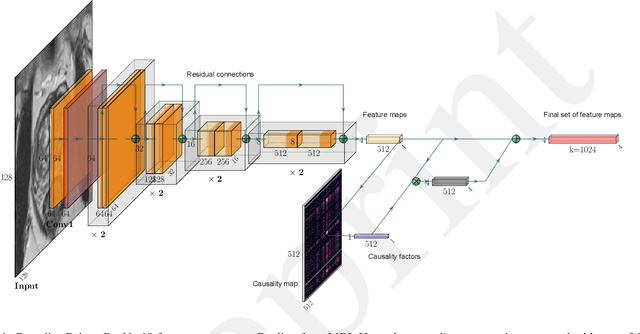Causality-Driven One-Shot Learning for Prostate Cancer Grading from MRI
Paper and Code
Sep 19, 2023



In this paper, we present a novel method to automatically classify medical images that learns and leverages weak causal signals in the image. Our framework consists of a convolutional neural network backbone and a causality-extractor module that extracts cause-effect relationships between feature maps that can inform the model on the appearance of a feature in one place of the image, given the presence of another feature within some other place of the image. To evaluate the effectiveness of our approach in low-data scenarios, we train our causality-driven architecture in a One-shot learning scheme, where we propose a new meta-learning procedure entailing meta-training and meta-testing tasks that are designed using related classes but at different levels of granularity. We conduct binary and multi-class classification experiments on a publicly available dataset of prostate MRI images. To validate the effectiveness of the proposed causality-driven module, we perform an ablation study and conduct qualitative assessments using class activation maps to highlight regions strongly influencing the network's decision-making process. Our findings show that causal relationships among features play a crucial role in enhancing the model's ability to discern relevant information and yielding more reliable and interpretable predictions. This would make it a promising approach for medical image classification tasks.
 Add to Chrome
Add to Chrome Add to Firefox
Add to Firefox Add to Edge
Add to Edge